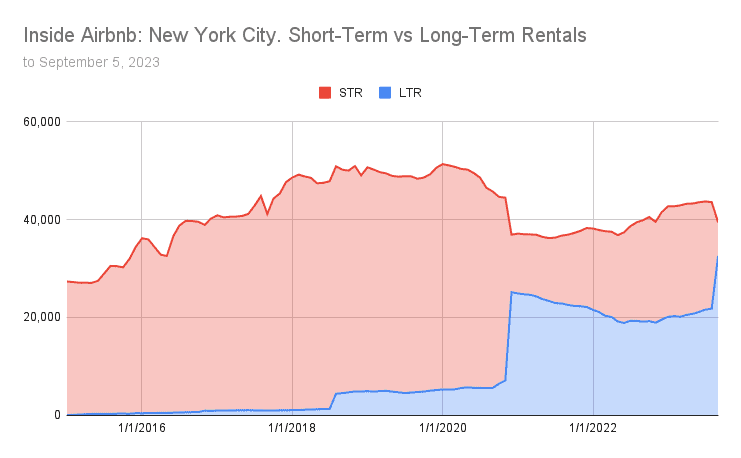The New York City government introduced new rules that will help enforce existing laws on short-term rentals, requiring them to be registered with the city.
They were designed to crackdown on short-term renting apps like AirBnB and Vrbo, which executive director of NYC mayor’s office of special enforcement Christian Klossner said have “illegal and unsafe accommodations.”
The new rules were passed in January, but finally went into effect on Tuesday this week. Klossner’s office confirmed they would be working with digital platforms to help get listings registered with the city.
Learn the benefits of becoming a Valuetainment Member and subscribe today!
According to existing New York City guidelines, short-term rentals must be the residence of the host, the guests must be allowed access to all parts of the housing unit, and only two guests can be hosted at a time. Airbnb hosts will now be forced to prove they live in the unit and that the unit is up to code on all safety regulations. Failing to meet the city’s standards could result in fines of up to $5,000.
When the laws went into effect, there were reportedly more than 40,000 Airbnb units listed in New York City. That number is anticipated to dwindle following the new requirements.
According to housing activist group Inside Airbnb, the ruling has already forced about 4,000 short-term listings off the market, with another 11,480 switching their status to long-term to avoid persecution.
The laws will negatively affect “the thousands of New Yorkers and small businesses in the outer boroughs who rely on home sharing and tourism dollars to help make ends meet,” said Theo Yedinsky, the global policy director for Airbnb. “The city is sending a clear message to millions of potential visitors who will now have fewer accommodation options when they visit New York City: ‘You are not welcome.'”
New York City is not the only major American city to come down on the digital renting platforms. Santa Monica City Council banned apartments from being rented for less than 30 days in 2015, according to the LA Times. In July 2023, Philadelphia began punishing short-term rental hosting apps that lacked licenses.



















Add comment